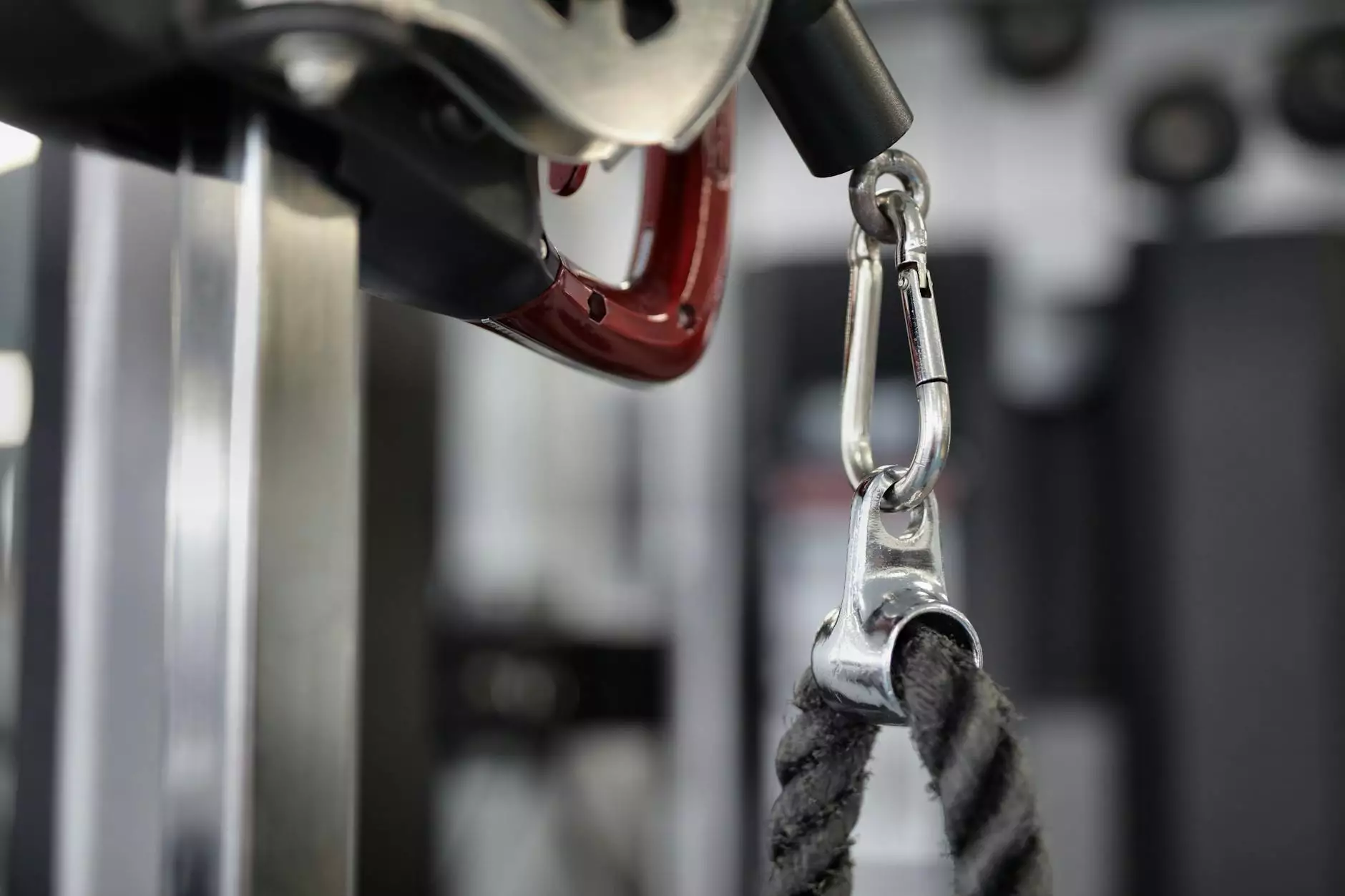The Ultimate Guide to Stainless Steel Banjo Fittings

Stainless steel banjo fittings are a vital component in various industrial applications that require reliable connections. Their unique design allows for flexible and efficient fluid transfer, making them indispensable in numerous sectors. In this comprehensive article, we will explore every detail of these fittings, including their types, advantages, applications, and where to purchase the best quality fittings. Whether you are a professional in the field or just starting, this guide will equip you with the knowledge you need.
What Are Stainless Steel Banjo Fittings?
Stainless steel banjo fittings are specialized connectors that provide a secure and leak-free connection in piping systems. Unlike traditional fittings, banjo fittings feature a unique design that consists of two parts: the banjo bolt and the banjo body. The banjo bolt has a hollow design that allows fluid to flow through it, while the banjo body provides a path for the fluid to travel from the fitting to the connected hose or pipe.
Key Components of Banjo Fittings
- Banjo Body: The main part that connects with the hose and allows fluid passage.
- Banjo Bolt: A bolt that has a hollow center, creating a pathway for fluids.
- Washer: Often made of rubber or metal to create a seal that prevents leaks.
Why Choose Stainless Steel for Banjo Fittings?
When it comes to selecting materials for fittings, stainless steel is often the best choice due to its numerous advantages:
- Corrosion Resistance: Stainless steel can withstand harsh environments and resist oxidation, making it ideal for applications involving water, chemicals, and extreme temperatures.
- Durability: With its remarkable strength, stainless steel fittings can endure high pressure and resistance to physical wear.
- Ease of Maintenance: Stainless steel is easy to clean and maintain, ensuring longevity and reliability in performance.
- Temperature Tolerance: Stainless steel fittings can operate effectively under high-temperature conditions without deforming or failing.
Applications of Stainless Steel Banjo Fittings
Stainless steel banjo fittings are utilized in a myriad of industries:
1. Automotive Industry
In the automotive sector, these fittings are essential for fuel systems, brake systems, and hydraulic applications. Their reliability and ability to withstand pressure make them a staple in vehicle manufacturing.
2. Aerospace Applications
In aerospace, where safety is paramount, stainless steel banjo fittings are used in fuel and hydraulic systems due to their strength and lightweight properties.
3. Industrial Machinery
Many industries use these fittings in machinery and equipment that require secure and efficient fluid transfer to ensure optimal operation.
4. Oil and Gas Industry
The oil and gas sector relies on stainless steel fittings for their corrosive resistance and strength, particularly in offshore and challenging environments.
Choosing the Right Stainless Steel Banjo Fittings
When selecting stainless steel banjo fittings, several factors need consideration to ensure you choose the right product for your needs:
1. Size and Specifications
Different applications will require specific sizes and thread types. It's crucial to measure the diameter and the thread specifications to ensure a proper fit. Common sizes vary, so know your requirements before purchasing.
2. Material Grade
Stainless steel comes in various grades (such as 304 and 316), each with unique properties. Grade 316 stainless steel is often preferred for applications exposed to harsh chemicals and marine environments due to its superior corrosion resistance.
3. Decide on the Type of Banjo Fitting
Banjo fittings can be either straight or angled. Consider the application's layout and the required angle of connection when choosing the fitting type.
4. Leak-proof Sealing
Always consider fittings that come with adequate sealing solutions such as rubber or copper washers to prevent any leaks during operations.
Where to Buy Quality Stainless Steel Banjo Fittings
Finding the right supplier is critical in ensuring you receive quality stainless steel banjo fittings that meet your specifications. Here are some considerations:
- Reputation: Choose suppliers with a solid reputation in the industry. Look for reviews and testimonials from previous customers.
- Product Range: Reliable suppliers offer a variety of products to meet your specific needs, including different grades and sizes of fittings.
- Customer Service: Good suppliers provide excellent customer support, helping you throughout the purchasing process and addressing concerns.
- Custom Orders: Some projects may require custom-fitting solutions. A quality supplier will have the capability to provide tailor-made fittings.
One such supplier is Fitsch, known for its high-grade fittings for sale including stainless steel banjo fittings. They offer a broad selection and exceptional customer service.
Installation and Maintenance of Stainless Steel Banjo Fittings
Installing stainless steel banjo fittings requires some knowledge and tools, but it is a manageable task for most professionals. Here is a step-by-step guide:
Installation Steps
- Preparation: Gather all necessary tools, including wrenches, sealing materials, and the fittings.
- Clean the Surfaces: Ensure that both the fitting and the hose or pipe are clean and free from debris to prevent leaks.
- Insert the Banjo Bolt: Position the banjo bolt through the flange of the banjo body and hand-tighten it initially.
- Securely Tighten: Use a wrench to tighten the bolt, ensuring you do not over-torque, which could cause damage.
- Check Seals: Inspect any washers or seals provided to ensure they are secured and not compromised.
Maintenance Tips
Regular maintenance is crucial to ensuring longevity and reliability:
- Routine Inspections: Periodically check for signs of wear, corrosion, or leaks that may develop over time.
- Cleaning: Clean the fittings regularly with suitable cleaning agents to ensure they remain in optimal condition.
- Replacements: Replace any worn-out seals or fittings immediately to prevent system failure.
Conclusion
Stainless steel banjo fittings are indispensable components that enhance fluid transfer across various industries. Their unique properties, such as corrosion resistance, durability, and versatility, make them a preferred choice in demanding applications. Understanding their components, types, and applications helps in choosing the right fittings and ensures optimal performance.
For high-quality stainless steel banjo fittings that meet your needs, consider exploring the product range available at Fitsch. Their commitment to quality and customer satisfaction will provide you with the reliable components necessary for your projects.



